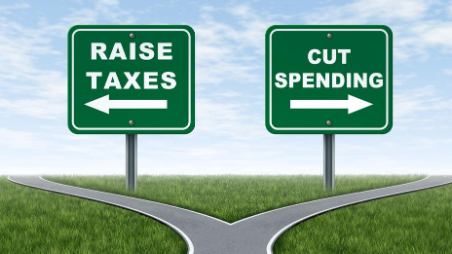A presidential inauguration is a time of both reflection and hope. We assess where we have come from over the past four years, and hope to define what we may be able to accomplish over the next four. In America power is shared; therefore, use of the word “we” is more than symbolic.
During the past four years America has emerged from the brink of another Great Depression. In reading recollections of members of The Administration at the time, it is remarkable how little consensus there was in attacking the formidable problems that we faced. In these reminiscences the president came off as less doctrinaire than he is portrayed in the media. For example, he abhorred the significant earmarks (pork) that Congress larded on to the stimulus bill. He wanted to veto the bill but was advised that if he stood up to Congress’ extortion, the stimulus bill probably would not pass, and our economy would have sunk further into the red.
So we are past the most critical part of the crisis and can now look at what we “bought” in terms of economic growth. At this point we have to conclude that most observers are disappointed with the pace of economic growth. There are many reasons cited for job growth that is half of what we should be seeing right now. However, the job statistics are a very blunt instrument by which to measure progress. The stats, for instance, tell us that many of the jobs being created in our economy are minimum wage or low wage positions. It is not surprising then that we are seeing more legislative proposals for raising the minimum wage, as people are increasingly finding themselves forced to rely on low wage positions to raise families.
Our economy is not only sluggish, but it is not creating the types of jobs to which the middle class has grown accustomed. This is the central issue of our time. Much has been written concerning the growing income disparity in America. We are increasingly becoming a bifurcated society in which the people at the very top control a disproportionate amount of the wealth, while the rest of the country experiences a decade or more of minimal to stagnant growth in income.
The Administration has tried to address the issue of income disparity by signing the American Taxpayer Relief Act recently. In fact the title of the Act is an oxymoron, since those in the top bracket received anything but relief! Both the president and Congress will have to do much more than this to address America’s income disparity. They will need to forge a consensus on using the legislative process to produce pro-growth economic policies. This fact has been obscured by all of the haggling about the debt ceiling and sequestration cuts.
In this next term the president will be required to develop much deeper relationships with members of Congress whose votes he will need to fulfill his vision. Past history would seem to indicate that our president will struggle with this task. However, the president does possess a bully pulpit where he can use moral suasion to move the needle on this problem.
It would indeed be refreshing if Mr. Obama could begin to channel one of his predecessors who challenged Americans to “ask not what your country can do for you — ask what you can do for your country.”
Deprecated: preg_replace(): Passing null to parameter #3 ($subject) of type array|string is deprecated in /home/ogorek_dev_minerva/ogorek.minervawddev.com/wp-includes/kses.php on line 1805
PLEASE SEE IMPORTANT DISCLOSURE INFORMATION HERE.




